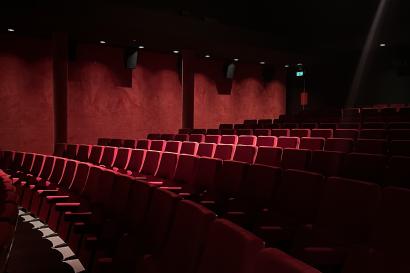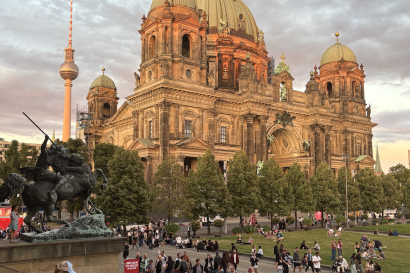The conception of a city has evolved substantially over the past few centuries. Before coming to Berlin and Paris, I thought of Paris through the words of Emile Zola and paintings of Cézanne, and I imagined Berlin as a place where beer and sausages flow around. However, having lived in Berlin for the past three months and visited Paris three times, I would argue that both cities are different from my previous imaginations about European cities—döner shops pop up at every street corner in Berlin, just as many as the Starbucks in Paris. On the other hand, the historical memorials in Berlin and the difficulty in communicating with waiters who only speak French in Paris constantly remind me of where I am. The boundaries among the global, national, and local are turning increasingly blurred with the advancement of technologies—the flow of goods and mobilization of human resources and financial capital are becoming seamless and, to some extent, borderless. Today, the urban identities of Paris and Berlin seek to balance globalized influences and their native culture and history.
Paris and Berlin as Global Cities
Globalization manifest in various forms. To simply name a few—politically, emerging powers such as China and India become more prominent in the international community through their integration into the global value chain. Traditional western economies have created supranational institutions such as the EU to set the rule of law and economic policies beyond nation states. Economically, MNCs continue to expand their hegemonies worldwide—17 million people are employed on global value chains and countless people consume goods that are produced elsewhere. Socially, the world is witnessing large waves of human migration due to both economic incentives and political instabilities. Connected through the Internet, people also find their shared interests in arts, fashion and lifestyles that transcends geographical space. These global trends are usually interwoven and reflected in the urban landscape of cities like Paris and Berlin.
From Champs-Élysées to the Louvre, from Galleries Lafayette to Ladurée Café, it is not hard to spot waves of tourists coming from Asia, to such extent that I would try to shy away from the crowd to avoid being identified as “one of those tourists”. In the past, the downtown Paris belonged to the bourgeois monsieurs and madames who had the leisure to sip tea in their high society salons. Today, more people around the world who have the financial means can experience these once-elitist pastimes. Many businesses and museums such as the Louvre still show guides written in the languages of major EU countries and Japanese, reminiscing those crowds of visitors from Japan in the last few decades. Nowadays, more and more of them have added “duty-free” signs in Chinese. One needs not to be a Parisian to enjoy the lavishness of the city. The bourgeois Parisian lifestyle has been commercialized and exported around the globe. While such experiences are no longer exclusive to the Parisian upper class, they are still statements of wealth and power— this time on a global scale.

Photo: French people waiting in line for Starbucks. Source: thelocal.fr
Meanwhile, the world is also exporting to Paris—Starbucks is surprisingly popular with the Parisian locals. The American coffee giant won the love of Parisians with its efficiency, Wi- Fi, and Frappuccino. Another American multinational food chain, McDonald's sells more burgers in France—home of Michelin Haute Cuisine— per head of the population than anywhere outside the United States.1 Beyond foreign businesses, foreigners are also migrating to Paris. The Chinese immigrants in Belleville live in a disparate world from the other Chinese waiting in lines in front of Louis Vuitton’s flagship store. Some of the Chinese women in Belleville, at their 40s and 50s, have worked illegally as prostitutes for years just to send their income back home.2 Paris’s charm washes off when it comes to the chaos on Rue de Belleville.
Paris is also a center for global governance and a hub of international talents. It is the headquarter to UNESCO; the UNESCO building was designed by a diverse group of architects, including Le Corbusier from France, Walter Gropius from Germany, Lucia Costa from Brazil, etc. Cité Internationale Universitaire de Paris consists of 40 establishments representing different nationalities to host international scholars and students since 1925.
 Photo: Inside of La Maison Brazil, one of the many establishments in City University of Paris hosting international students and scholars from Brazil.
Photo: Inside of La Maison Brazil, one of the many establishments in City University of Paris hosting international students and scholars from Brazil.
Berlin’s globalization reveals itself in a different way. In Neukölln and Kreuzberg, Turkish kebab restaurants and German beer retailers go side by side. Next to the Tempelhof Airport, refugee children are riding their bikes and soaking up the sunshine. There is a less evident statement about the rich and poor distinctions in the city as it does in Paris—Bauhaus-style modern, unornamented and industrial designs downplay the social classes of the residents. Culturally, in today’s Berlin, hippie artists overshadow the high society, if there is any. English is so common spoken in Berlin that for some people studying and working in the city, German becomes less of a survival skill. In addition, the burgeoning startup scene has attracted talents from other EU countries and beyond. Three of my friends, from Hong Kong, Vilnius, and Tel Aviv respectively, have all chosen to pause their study in the U.S. to work for digital startups in Berlin, none of whom speak German. While in Paris, there is a clear distinction between the visitors and the locals, Berlin takes a more fundamental approach—even the mundane and basic way of living in Berlin is an international one.
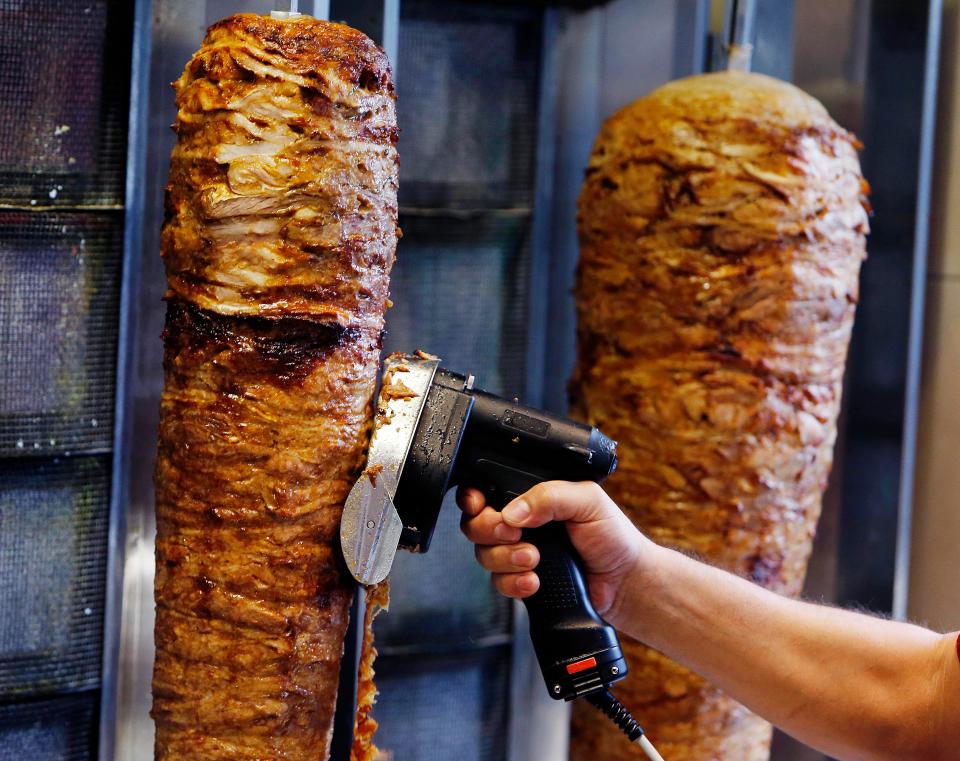
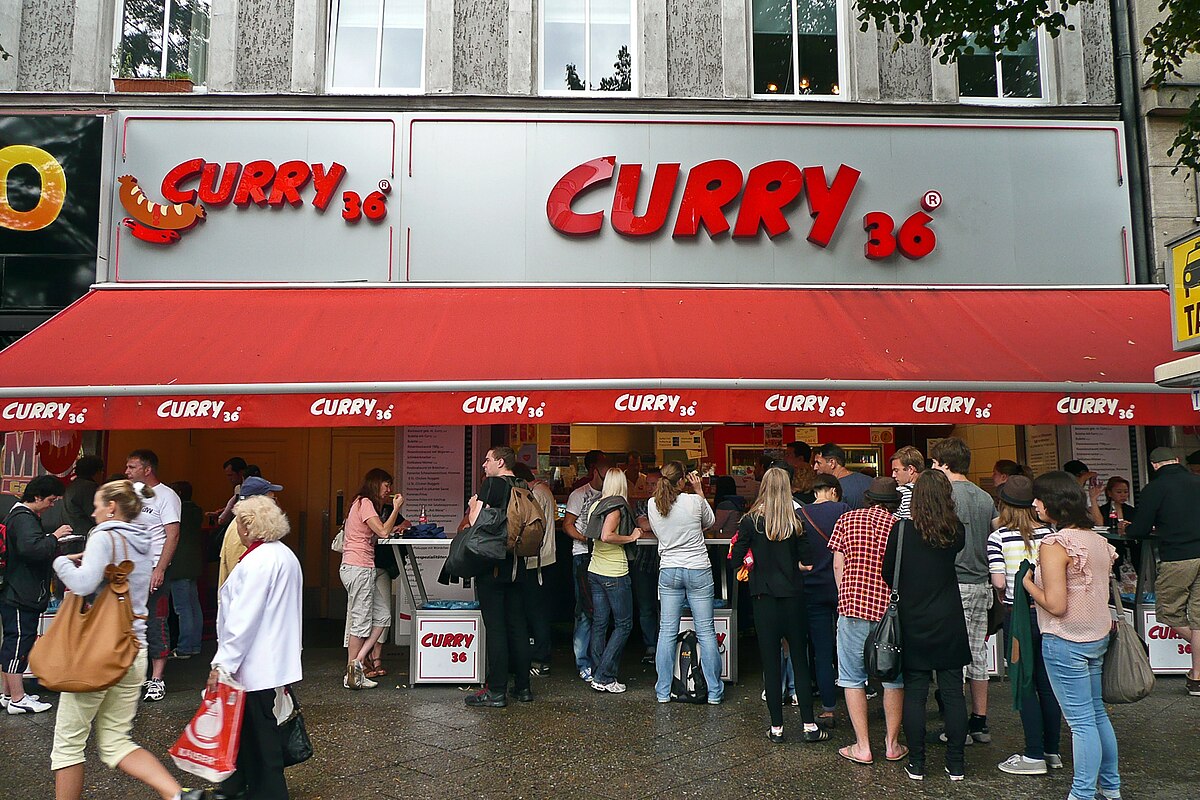
Photos: döner and curry sausages are the two most popular street food in Berlin.
Public debates and intellectual talks on European integration and Germany’s role in the EU have been the major theme in Berlin’s public discourse. In the past three months, I have personally visited five different think tanks in Berlin representing political parties, private philanthropy, and international academia. The participants in these public discourse range from political journalists to retired local residents. These public concerns for Germany’s domestic issues and EU politics are often entangled, as Germany becomes embedded in a global politico-economic system.
Native Roots in Paris and Berlin
Nonetheless, globalization has not completely eradicated the cities of their native roots. The preservations of the city’s native and national identity can also be observed in political, economic and social arenas. Political discourses in EU countries have lately demonstrated a stronger nationalistic and Eurosceptic rhetoric. In spite of the Single Market scheme, certain domestic brands still hold a strong local domination and are preferred by the local consumers. Insistence on the use of native languages also declares national pride and cultural domination.
In Paris, it is difficult to navigate around the city without knowing basic French. Be it waiters or grocery owners, they will not start speaking English until my broken French made it impossible to communicate. The reluctance to use foreign languages insinuates a sense of cultural superiority and pride. Till this day, the Paris government still refurbishes periodically the Haussmannian building façade designed in the 19th century to maintain its historical origins and preserve the Napoleon-era glory. In the most renowned museums such as the Lovre, Musee d’Orsay and Musée des Arts Décoratifs, French painters, Impressionism and motifs centered around Paris are the most predominant themes. The curation intends to remind visitors, as they walk through the splendid galleries, of France’s glorious achievements and its leading role in the Western civilization.
Similarly, the fleet of Mercedes-Benz taxis and public buses in Berlin serve as the country’s business card for the world to admire the crown jewels of German industry. Young people in Berlin take extraordinary delight in being the trendy “Berliners”–dressed in all-black outfits or vintage sportswear to make a loud cultural statement. Contrary to Paris’s proud presentation of its cultural accomplishments, however, Berlin marks its urban landscape with all types of war memorials and monuments that permanently incorporate the country’s darkest memories into its contemporary form. The history of Berlin is a globalized trauma but also the cautious reminder of this trauma is a domestic one.
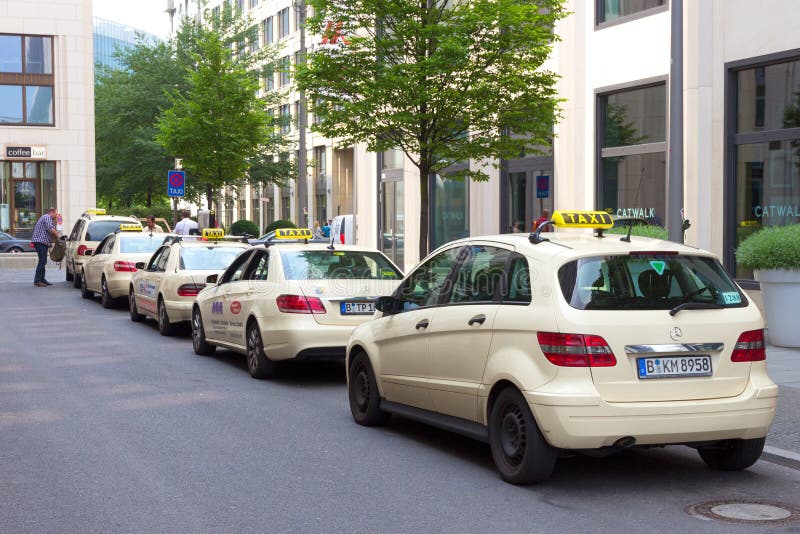 Photo: Fleet of Mercedes Benz taxis in Berlin
Photo: Fleet of Mercedes Benz taxis in Berlin
Contrary to mainstream political orientations, there have been nationalistic and anti-globalization movements in the political discourse of France and Germany. The increasing wide support for the populist and exclusionist agenda of Front National and AFD reveals the hidden anger and anxiety of the natives towards the changes in their community brought by globalization. The cling towards one’s native roots can aim beyond the preservation of culture and economy; it sometimes serves as a rejection of the reality and the progression of history. But besides the political and social resistance against cities’ globalizing transformations, globalization and national identities do not act always as contradicting forces, instead, they converge to form the metamorphosis of cities today. The blend of global, national, and local features, as well as the connection between the past and present, are what defines the urban identities of Berlin and Paris. It is the unique combination all these different factors of influences that shape the cities in their particular dynamics.

Hannah Shen
<p class="MsoBodyText" style="margin-top:2.35pt; margin-right:8.35pt; margin-bottom:.0001pt; margin-left:5.0pt"><span style="line-height:115%">Hi, my name is Hehe Shen and I am a junior studying Government at Harvard University. I lived in Shanghai, China for 18 years and New York City for a year before going to college in Cambridge, Massachusettes. One fun fact--many people thought I was joking when I told them my name is "Hehe" (it is correctly pronounced as Huh-Huh in Mandarin and means grandeur). It is funny how the meaning of my name is lost in translation and assumes a new hilarious image. Academically, I am very interested in comparative politics in Asia-Pacific as well as global governance. In the past four years, I have been involved in running international education conferences in China that introduces liberal arts education to 1000 Chinese high school students. In my spare time, I enjoy making latte art, wine tasting, cycling and traveling. As a coffee addict, I spent four months working at a special cafe in Shanghai to be a semi-professional barista.</span></p>




